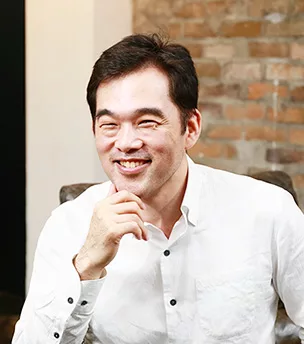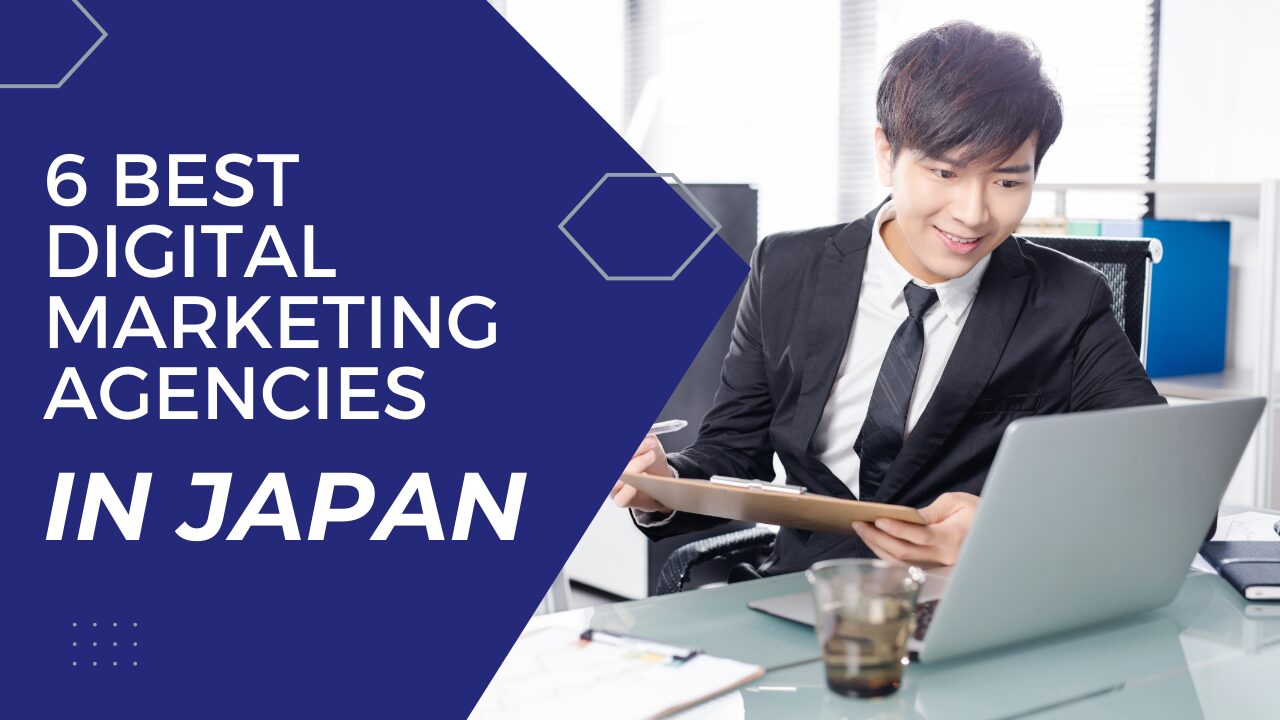Article last updated in June 2025.
Your success in Japan often hinges on one decision: picking a partner who truly understands the local digital landscape. This guide compares the country’s leading agencies, explains how Japan’s digital ecosystem differs from other markets, and shows you how to evaluate partners if you are entering from abroad.
Quick‑Glance Comparison
| Agency | Clients | Strengths | Weaknesses |
|---|---|---|---|
| EC Marketing | Estée Lauder, Pioneer, CLINIQUE, Levi’s, Disney | Bilingual consultants; comprehensive services; educates internal teams; budget-friendly | Small team; average knowledge of Rakuten and Amazon |
| Humble Bunny | Hilton, Finnair, Bose, Ralph Lauren, SK-II, Coca-Cola Japan | Going beyond surface-level metrics like pageviews, focusing instead on more meaningful KPIs such as conversions and conversion rates. | Small team; not ideal for large-scale initiatives |
| Dentsu Digital | Microsoft, Toyota, Sony | Japan’s largest ad agency; ideal for branding and large-scale campaigns | Expensive; slow due to complex approval structures |
| Wunderman Thompson | Confidential | Global expertise; ideal for large multinational strategies | Weak local market insight; not suited for small projects |
| Irep | Adidas, Audi, L’Oréal, Farfetch, AXA Direct, Dell | Strong ad operations; local presence; handles global clients | Junior staff may be assigned to smaller clients; limited bilingual support |
| Le Grand | Zurich Insurance, Triumph International | Pioneers in search marketing; high bilingual ratio | Small team; availability must be confirmed |
Digital Marketing in Japan: Unique Characteristics

Japan’s digital ecosystem has evolved along a distinct trajectory shaped by its mobile-first culture, preference for local platforms, and a strong emphasis on user experience. From the early success of Yahoo! JAPAN and Rakuten in the 2000s to the unique mobile services like NTT DoCoMo’s i-mode, digital adoption in Japan often diverges from Western trends.
Social media also followed a different path, with platforms like Mixi, GREE, and 2ch dominating the pre-smartphone era before the local launch of Twitter (2006) and Facebook (2008). Even today, Yahoo! maintains a significant share in search, and local review and affiliate sites—like Kakaku.com, Tabelog, and A8.net—play an outsized role in influencing purchase decisions.
When entering Japan’s digital market, foreign businesses must consider these key differences in platform preference, user behavior, and content expectations.
The Importance of LINE Marketing
One of the most crucial differences in Japan's digital ecosystem is the dominance of LINE. Unlike in many other countries where WhatsApp or Facebook Messenger are the norm, LINE is the most widely used communication platform in Japan, functioning as a messaging app, social network, and content hub all in one. With over 90 million users in Japan, LINE is an essential channel for customer communication, especially for B2C brands.
LINE offers a variety of marketing tools including official accounts, targeted ads, chat automation, and e-commerce integrations. It is commonly used for distributing coupons, promoting campaigns, and engaging customers with personalized content. Brands that overlook LINE in their strategy risk missing out on one of the most effective communication channels in the Japanese market.
Japan’s digital ecosystem is built on a mobile-first foundation, and unique tools like QR codes, mobile wallets, and LINE reflect that. Any effective marketing strategy in Japan must be localized and built with these consumer behaviors in mind.
Four Key Considerations for Digital Marketing in Japan

-
1. Yahoo! Remains a Key Search Engine
Google is dominant globally, but Yahoo! JAPAN still commands a large share of Japan’s search traffic. A successful SEO/SEM strategy often means optimizing for both. -
2. Own-Domain Sites Build Trust
Japanese users place strong value on company websites with their own domains. Even if you list on Rakuten or Amazon, your main hub should be a proprietary site. -
3. Leverage Comparison & Affiliate Platforms
Sites like MyBest, Kakaku.com, and affiliate networks such as A8.net are powerful tools in Japan’s highly research-driven purchase funnel. -
4. Reputation is Everything
User reviews on Google, Tabelog, Kakaku.com and other local platforms have a major impact on conversions. Proactive reputation management is essential.
Six Criteria for Choosing a Digital Marketing Partner in Japan

Choosing a Japanese marketing agency is not just about track record—it’s about team fit and project execution. These six factors will help you make an informed decision:
-
1. Business Model Focus
Does the agency prioritize selling tools or offer true consultative support? -
2. Custom vs. Template Deliverables
Large agencies often rely on templates. Look for a team offering tailored strategies. -
3. Depth of Deliverables
Do you receive detailed roadmaps and documentation, or only high-level summaries? -
4. Project Manager Experience
Insist on knowing who will lead your project. Experience matters more than pitch decks. -
5. Industry Familiarity
Your agency should understand your product category and competitive context. -
6. Balance of User and Business Needs
Effective teams bridge brand goals with Japanese consumer preferences.
Agency Comparison: The Top 6 Digital Marketing Agencies in Japan
Agency Profiles: Detailed Breakdown
EC Marketing

- Clients: Estée Lauder, Pioneer, CLINIQUE, Levi’s, Lands’ End, Disney
- Strengths: Bilingual consultants with deep knowledge of both Japanese and Western markets. EC Marketing doesn’t just run campaigns—it helps the clients’ internal team gain the skills and strategy to manage and grow independently. The agency is known for its flexibility, hands-on service, and thorough work across UI/UX, research, and performance.
- Weaknesses: As a boutique firm, capacity can be limited. Also, while capable in general ecommerce, expertise on Rakuten Mall and Amazon Japan can be average.
- Budget: Starting from tens of thousands of yen, with average project fees in the hundreds of thousands of yen.
Humble Bunny

- Clients: Hilton, Finnair, Bose, Ralph Lauren, SK-2, Coca Cola Japan
-
Strengths: Founded by Nathan Hoernig, who studied Japanese culture and history at University in the US and moved to Japan in 2007. Since then, he has been an active figure in Japan’s digital marketing industry and is now a seasoned expert.
Humble Bunny is known for going beyond surface-level metrics like pageviews, focusing instead on more meaningful KPIs such as conversions and conversion rates. While not flashy, the agency has a solid track record and serves many global brands entering the Japanese market—an understated yet highly capable team of digital marketing professionals. - Weaknesses: Like EC Marketing, Humble Bunny operates with a small, specialized team. For large-scale promotional campaigns involving mass media, major agencies such as Dentsu or Irep may be better suited.
- Budget: Estimated starting from tens of thousands of yen, with average project fees in the hundreds of thousands of yen.
Dentsu Digital

- Clients: Microsoft, Toyota, Sony
- Strengths: Backed by Japan’s largest media conglomerate, Dentsu Digital has unrivaled access to advertising channels and data. It’s ideal for large-scale branding and nationwide marketing initiatives.
- Weaknesses: Due to its size and complexity, projects must go through multiple layers of internal approval, often leading to slow execution. Not a good fit for tight budgets or fast turnarounds.
- Budget: Projects start from several million yen.
Wunderman Thompson

- Clients: Confidential
- Strengths: Part of a global marketing network, Wunderman Thompson brings international strategy expertise to its campaigns. Best suited for global brands running synchronized campaigns across multiple regions.
- Weaknesses: Their team often lacks local insight into Japanese digital channels and user behaviors. May not be ideal for smaller clients or Japan-specific strategies.
- Budget: Projects start from several million yen.
Irep

- Clients: Adidas, Audi, L’Oréal, Farfetch, AXA Direct, Dell
- Strengths: One of Japan’s leading performance marketing agencies, Irep has deep capabilities in PPC, display advertising, and data-driven campaigns. Works with many high-profile global clients.
- Weaknesses: As a large company, smaller projects may be staffed with less experienced consultants. Also, limited English-speaking personnel.
- Budget: Project fees range from several hundred thousand to several million yen.
Le Grand

- Clients: Zurich Insurance, Triumph International
- Strengths: Early pioneers in Japan’s search engine marketing, Le Grand has retained a high level of bilingual expertise. Good fit for technical SEM/SEO needs and consultation.
- Weaknesses: The firm has a small team and may not always be available to take on urgent or large-scale work.
- Budget: Project fees range from several hundred thousand to several million yen.
Conclusion
Digital marketing in Japan rewards precision, localization, and a deep understanding of local user behavior. Whether you’re building your first campaign or scaling up, the right partner can streamline your path to market.
For brands that want to build internal capabilities—not just outsource tasks—EC Marketing offers a hybrid of consultation, execution, and team enablement that’s rare among Japanese agencies. And with bilingual support starting from a lean ¥200,000, it’s a smart fit for budget-conscious businesses looking to grow with confidence.
Still unsure? Reach out to discuss your goals, and we’ll help you explore the right next step.
Author Introduction
Chief Consultant of EC&Marketing Inc : Hajime Ito

Hajime Ito has 24 years of experience in digital marketing in Japan, with living and business experience in Malaysia and the United States. He has been involved in digital marketing since 2000, supporting web marketing for major companies. Before Google Analytics, he reported on server log analyses in 2002 and managed web ads before Google AdWords. Recognizing the importance of site usability in 2006, he implemented Jakob Nielsen’s insights to improve conversion rates. He organized the “Conversion Up Summit” in 2006 and has since contributed to 800 usability improvement projects.



